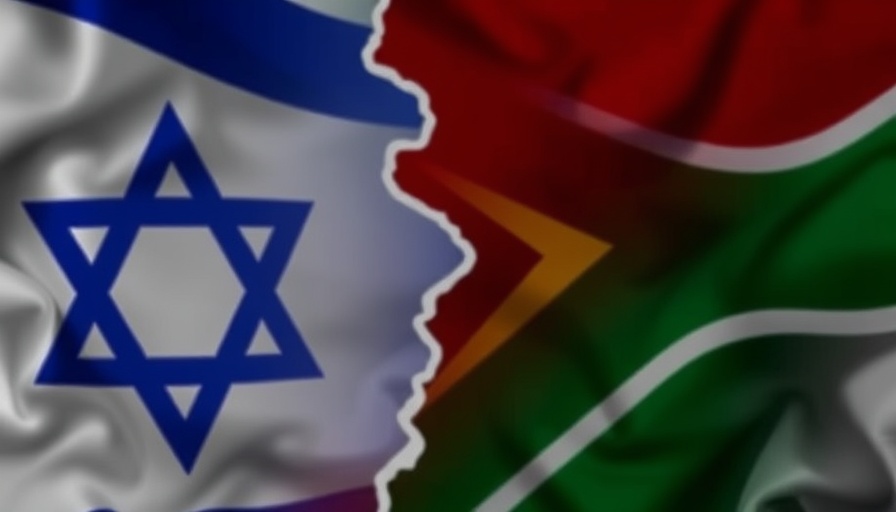
A Rising Concern: South Africa's Diplomatic Position
Recently, as tensions escalate between Israel and Iran, South Africa has taken a proactive stance, urging dialogue to resolve the conflict. With the country's notable history of advocating for peace and reconciliation, President Cyril Ramaphosa’s administration expresses an 'anxious' desire for stability in the region.
The Stakes of Foreign Affairs
This plea for dialogue reflects South Africa's commitment to foreign policy that emphasizes diplomacy over military action. Given the complexities of international relations, particularly in regions like the Middle East, Ramaphosa's call for peace is not merely aspirational; it is rooted in historical context. South Africa has long positioned itself as a mediator, drawing from its own experiences with apartheid and systemic conflict.
Regional Implications of the Conflict
The ramifications of the Israel-Iran conflict extend beyond the borders of those nations, potentially affecting South African diplomatic and economic interests. As a member of BRICS and with presidential involvement in the G20 presidency, South Africa’s voice carries weight. Encouraging diplomatic resolutions may not only foster peace but also secure South Africa's moral and political credibility on the international stage.
Voices from South Africa's Political Landscape
The dichotomy within South African politics also plays a crucial role in approaching foreign affairs. Political realignments, such as the interactions among major parties like the ANC, DA, and EFF, can shape the country’s international position. Opposition politicians like John Steenhuisen and Julius Malema often critique the government’s foreign policy for being too lenient or proactive, emphasizing that perceptions about the conflict's resolution could impact domestic voter turnout in the upcoming 2024 elections.
Public Sentiment on Conflict Resolution
Public sentiment is another vital factor as South Africans express varying degrees of engagement and concern about the implications of international conflict. The rise of grassroots movements advocating for peace and democracy highlights the intricate layers of public opinion, ultimately influencing how the government strategizes its response to international crises. Understanding this public dynamic may lead to better service delivery and more responsive governance.
The Challenge of Accountability
Accountability in foreign policy decisions becomes crucial, especially as South Africa navigates its role on the global stage. The need for transparent decision-making processes in handling foreign relations resonates with calls for executive accountability that many citizens demand. As debates around reform in state-owned enterprises and anti-corruption measures gain traction, these discussions also reflect on how South Africa manages its diplomatic engagements.
Looking Towards the Future
As tensions continue to brew, South Africa’s role as a mediator may lead to a more significant international presence. In advocating for peace, the country sets a framework for its foreign policy moving forward, one that prioritizes dialogue and constructive engagement over partisanship and isolationism. The implications of these decisions are substantial as they could influence not only foreign relations but also local perceptions of the government’s efficacy in representing collective interests.
Through this lens, it becomes essential for South Africans to stay informed and engaged regarding both their national and international responsibilities. Given the potential impact on local issues such as social grants, economic inequality, and racial reconciliation, active public participation is critical in shaping a foreign policy that reflects the values of South African society.
Engagement and Action: A Call for Reform
In light of these developments, it is incumbent upon South Africans to advocate for reforms that address not just diplomatic concerns but also domestic challenges. Engagement with civil society, political representatives, and strategic partnerships will be key in mobilizing efforts for meaningful change. As citizens prepare for the 2024 general elections, understanding the interplay of domestic and international situations is crucial in voting decisions. Be an informed voter and advocate for leadership that prioritizes dialogue, accountability, and sustainable solutions.
 Add Row
Add Row  Add
Add 




Write A Comment